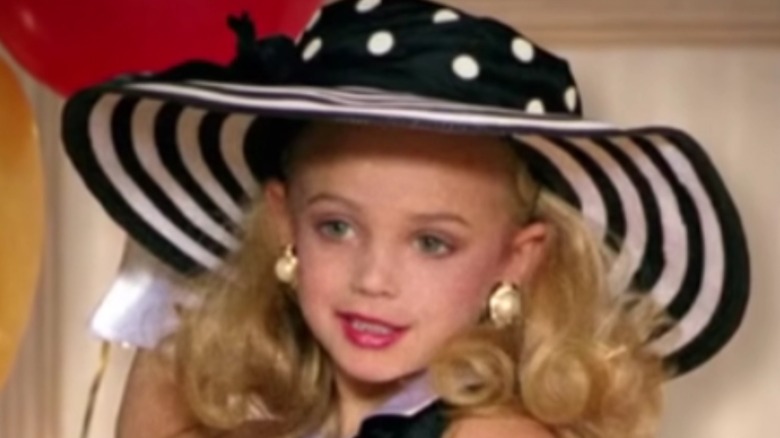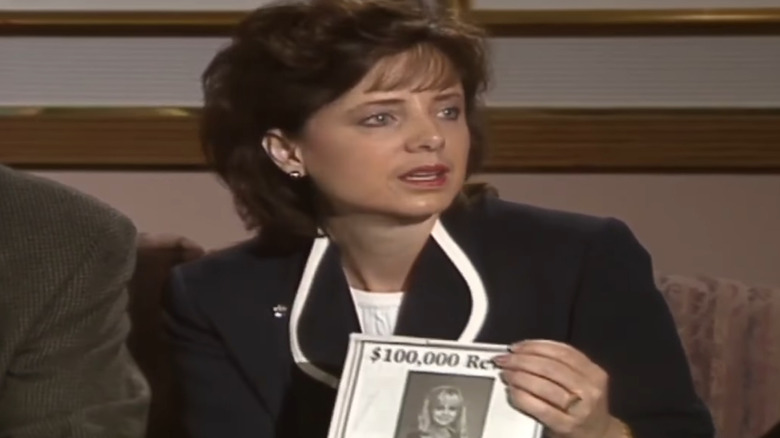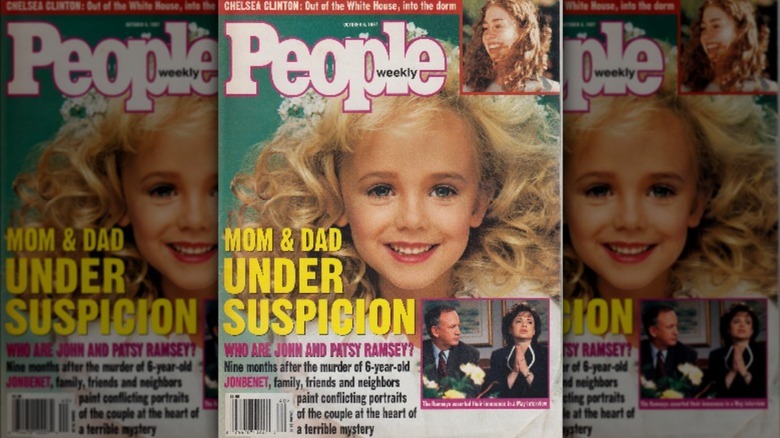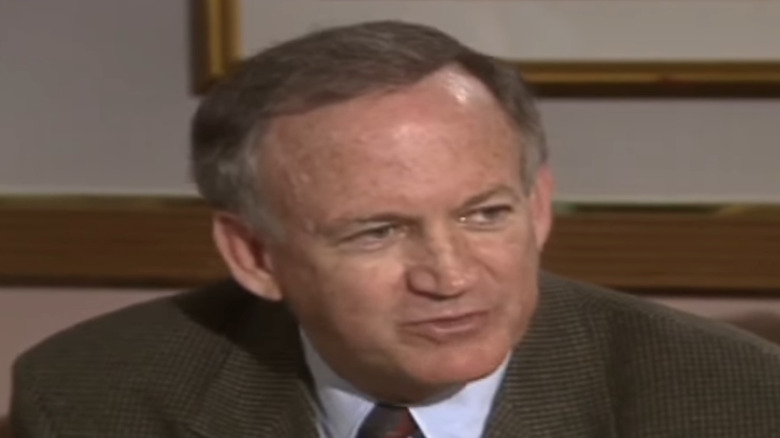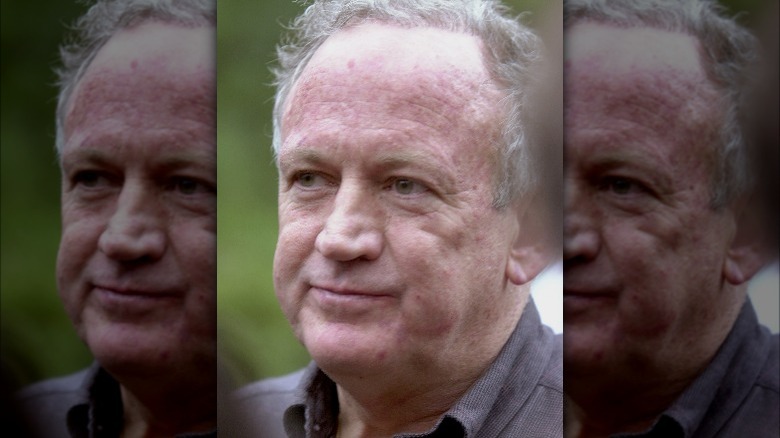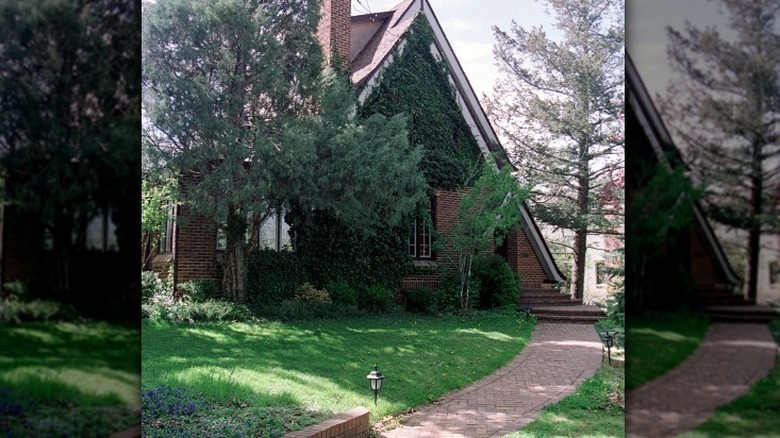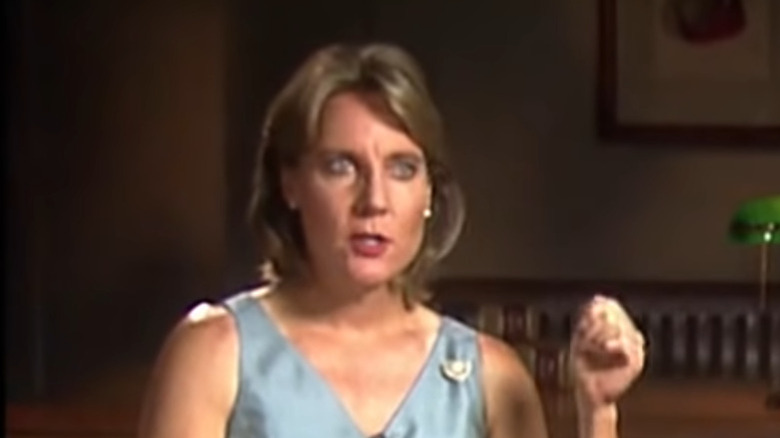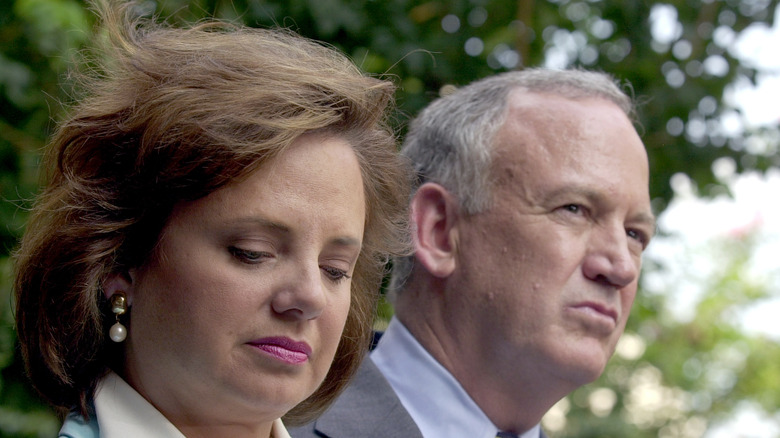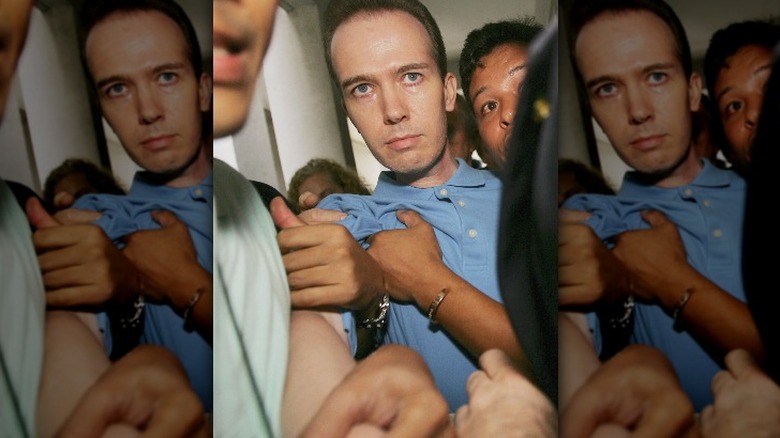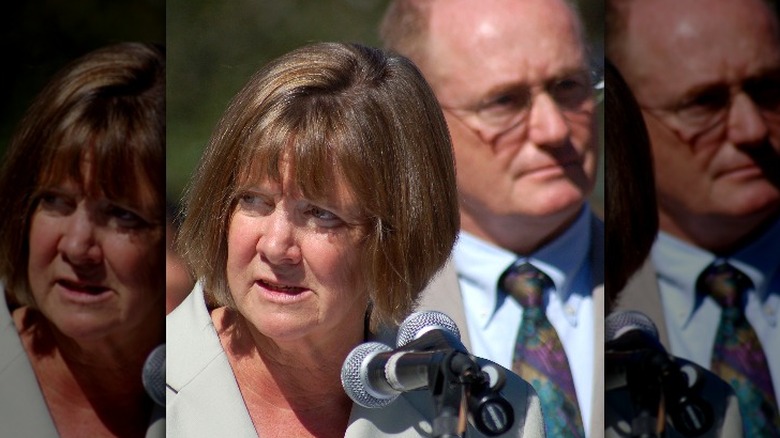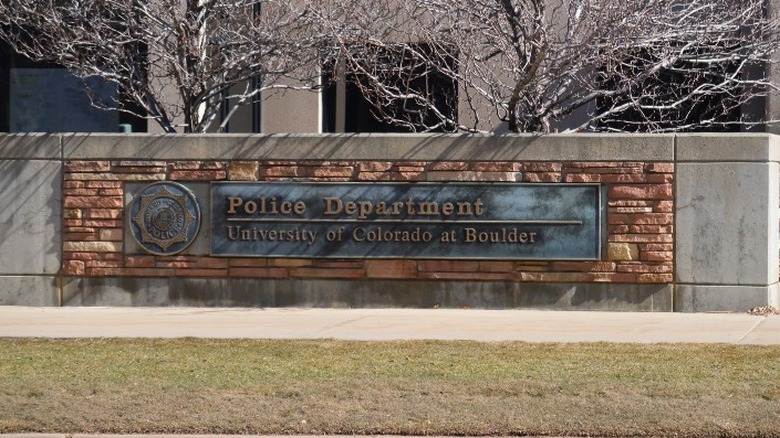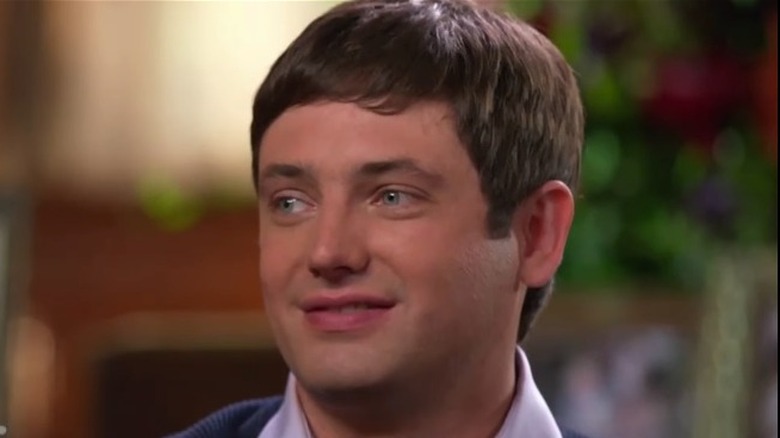The Entire JonBenet Ramsey Case Timeline Explained
In the winter of 1996-1997 the killing of a young girl in Boulder, Colorado, shocked the nation just after Christmas Day. The suspicious death of 6-year-old JonBenét Ramsey, a former Little Miss Colorado, caught the nation completely off guard at a time when most Americans were still celebrating the holidays with their families. The case brought widespread attention to the college town. Even national news outlets like the New York Times picked up on the story within days and encapsulated their audiences with almost daily coverage for the next month. Astonished and saddened, readers closely followed those reports hoping for resolution in the grisly murder case.
More than 25 years later the case is still unsolved. Reporters still publish books with regularity, and investigators continue to probe for answers to questions that some think are now impossible to find. The death of young JonBenét Ramsey will continue to haunt the world until it is finally solved, if it ever is. This is the entire JonBenét Ramsey case timeline explained.
December 1996: The last time JonBenét Ramsey was seen alive
On December 25, 1996, John and Patsy Ramsey saw their daughter JonBenét Ramsey alive for the last time when they put her to bed that night. According to local media outlet 9News, mom Patsy awoke early the next morning and found a ransom note demanding $118,000 for the return of her daughter. The note's authors claimed to "represent a small foreign faction" and threatened to kill JonBenét if the family alerted any law enforcement or tried to "out smart" them.
As reported by the Denver Post, the family initially thought JonBenét was only kidnapped before father John found her lifeless body in their basement around 1:30 p.m. The police immediately considered the case a homicide, and the FBI joined the investigation. According to the Post, the police collected DNA samples from several members of the family, including John. The family flew back to their former town in Marietta, Georgia, and they buried JonBenét next to her half-sister Elizabeth who had died four years earlier during a car accident in 1992.
The Crime Museum in Washington, D.C. notes that the Boulder PD made several mistakes within hours of taking the case. They failed to quarantine the entire house, which allowed for evidence to be contaminated and even told John and a family friend to search the house for the body. When John found the body and brought it upstairs he likely destroyed even more evidence unknowingly.
January 1997: The case goes national
On January 1, 1997, the New York Times reported the former Little Miss Colorado and America's Tiny Little Miss 1996 died of "an asphyxiation by strangulation." They noted the town of Boulder was "shocked" by the murder, and young children in the Ramsey's neighborhood felt unsafe in their own homes. That same day, the Ramseys gave their first nationally televised interview with CNN where they claimed "there is a killer on the loose," and Patsy Ramsey suggested the possibility of a reward for information on the killer.
According to CNN, the family refused to submit to polygraph tests in January while reports emerged about the possibility of a "practice" ransom note being written. Late that month, the New York Times reported that the police had interviewed over 90 people, received over 500 letters, and fielded 1,100 phone calls relating to the case. The Times also reported that the authors of the ransom note "appear[ed] to have intimate knowledge about Mr. Ramsey," because the amount of the ransom matched the amount John had received as his bonus and included a possible reference to his time in the Navy at the Sub Bay Training Center in the Philippines.
February-May 1997: Ramseys named as focus of investigation
According to 9News, on February 13 Boulder Police Chief Tom Koby and District Attorney Alex Hunter held a news conference updating the public on the case, and they announced the creation of a task force that included leading members from O.J. Simpson's defense team from his murder trial two years prior. A month later, the police cleared John Ramsey of writing the ransom note but were still inconclusive on his wife. CNN reported the police searched the family's summer home in Charlevoix, Michigan, for the second time, looking for potential "'unrehearsed' writing samples" from Patsy Ramsey.
On Friday, April 18, Hunter named both John and Patsy as "the focus of the investigation" (via the Denver Post). The New York Times reported in May the investigation had cost the police and DA upwards of $300,000, and the Ramseys had hired multiple lawyers, private investigators, a PR spokesperson, and a handwriting analyst. On April 30, Boulder Police conducted their "long-awaited 'formal interviews'" with the Ramseys for over eight hours. The next day, the Ramseys broke their four-month silence and took part in another nationally televised interview with CNN. In a subsequent interview with local media outlets including 9News, John Ramsey said, "Let me address very directly, I did not kill my daughter JonBenét ... JonBenét and I had a very close relationship, I will miss her dearly for the rest of my life."
If you or anyone you know has been a victim of sexual assault, help is available. Visit the Rape, Abuse & Incest National Network website or contact RAINN's National Helpline at 1-800-656-HOPE (4673).
August 13, 1997: JonBenét Ramsey autopsy released
On August 13,1997, Boulder Police released the full autopsy for JonBenét Ramsey, and it was full of grisly details. The Denver Post published the autopsy, which cited "asphyxia by strangulation associated with craniocerebral trauma [severe brain injury]." The report noted the girl's hands and neck had been bound by separate white cords, and there were numerous abrasions and petechial hemorrhages [spots indicating bleeding under the skin]. The report also stated she had a skull fracture nearly 9 inches long.
The Associated Press reported that prosecutors had previously sought to keep the autopsy from becoming public, but the Colorado Supreme Court refused to hear their arguments and allowed for all but six parts to be published. The AP also noted that "experts" had "differed" over whether or not it contained evidence of sexual assault, and one of them indicated it potentially showed a pattern of child abuse dating to before the murder.
If you or anyone you know has been a victim of sexual assault, help is available. Visit the Rape, Abuse & Incest National Network website or contact RAINN's National Helpline at 1-800-656-HOPE (4673).
January-March 1998: John and Patsy refuse new interviews with police
On January 16, 1998, The Washington Post reported that John and Patsy Ramsey refused to grant another interview with the Boulder Police, but they did offer to give written answers to formal questions. The Boulder police had also requested to interview their son, Burke Ramsey, 11, at the same time. The Ramseys asked the police to show "good faith" by allowing for them to view the evidence in the case, but the police refused to do so and did not release any new evidence to them.
According to CNN, in February 1998 the Boulder police lost evidence from the case after acknowledging the previous October that "if we had to do [the investigation] all over again, we would do it differently." Interviews and statements were reportedly among the lost items. The New York Times reported in March the Boulder police formally requested a grand jury be convened. The same report also cynically stated the family had appeared to have "moved on with their lives" following the absence of any new leads or evidence.
June-October 1998: Police interview Burke Ramsey and grand jury officially convenes
The Associated Press reported in August on the resignation of Detective Steve Thomas, an original investigator on the case, who called the investigation a "continuing travesty" and accused the Boulder district attorney of being "thoroughly compromised." The Daily Camera, a local Boulder newspaper, reported a month later on the resignation of another detective, Lou Smit, who accused the Boulder police of letting "their theory direct them rather than allowing the evidence to direct them."
That same month the Camera reported that investigators had interviewed Burke Ramsey, 11, in June. The interviews were conducted by the Boulder County DA's Office and the Broomfield Police.
The Denver Post had also reported in August an enhanced recording of the original 911 call from the Ramsey house "appeared to include" Burke's voice, which would have contradicted earlier statements that he was asleep at the time. The Post reported on September 16 that the grand jury had formally convened and would be hearing evidence related to fibers found at the crime scene.
March-September 1999: Former detective claims she knows who the killer really is
By March of 1999, the Daily Camera reported that the city of Boulder and state of Colorado had spent more than a combined $1.7 million on the investigation and the grand jury up to that point and were requesting another $62,001 to continue funding the grand jury. A month later the Camera revealed that Boulder District Attorney Alex Hunter had been granted a six-month extension for the grand jury, and that the Boulder police were working with another veteran of the O.J. Simpson defense team, criminologist Henry Lee.
That May the Camera reported that Burke Ramsey testified in front of the grand jury, but the DA officially declared that he was not a suspect. Months later in September, the Camera reported that former detective Linda Arndt, who had resigned from the Boulder police department in March of that year, appeared on "Good Morning America" to discuss aspects of the case. Arndt claimed she "feared for her life" during the interview and had "no doubt" who the killer was, but she refused to identify them on-air. Police refused to comment on her comments, but the Ramsey's lawyers called them "bizarre speculations" and "psychic impressions" (via the Associated Press).
October 13, 1999: Grand jury votes to indict the Ramseys but the DA refuses to file charges
On October 13, 1999, Boulder District Attorney Alex Hunter announced that the grand jury had finished its investigation, and that he would not be filing charges against the Ramseys because of a lack of evidence (per The Washington Post). Bill Owens, Colorado's governor at the time, declared the possibility of a special prosecutor being assigned to take over the case. The Ramseys released a statement following the announcement of no charges being filed saying they took "no satisfaction in this result because a child killer remains free and undetected" (per the Denver Post).
Unknown at the time but reported 14 years later by CNN in 2013, unsealed court documents showed in 1999 the grand jury had voted to indict both John and Patsy Ramsey on charges of both "child abuse resulting in death" and being "accessories to a crime." According to the court documents, both parents sought to "hinder, delay and prevent the discovery, detention, apprehension, prosecution, conviction and punishment" of an unidentified person. Hunter refused to file the charges even though the grand jury voted for them.
2000-2001: The Ramseys release a book and file libel lawsuits
The Daily Camera reported in February 2000 on the release of the Ramsey's book, "Death of Innocence," almost exactly five months after the Boulder district attorney announced they would not face charges in the death of JonBenét Ramsey. The book named three potential suspects: a former employee at John Ramsey's company, a former University of Colorado professor, and a Boulder journalist. The Ramseys planned a series of national television interviews to promote the book.
The Camera later reported in June 2001 on the state of a series of lawsuits filed both for and against various Ramsey family members. The Ramseys had sued AOL Time Warner for $70 million on behalf of Burke Ramsey, former detective Steve Thomas for $80 million for libel, and had at least three other libel suits pending. Meanwhile, two people had filed their own libel lawsuits against John and Patsy over accusations in their 2000 book. The Ramsey's personal lawyer in these suits was L. Lin Wood, who would find himself sanctioned 20 years later in U.S. court for attempting to overturn the 2020 Presidential Election on behalf of Donald Trump (via Politico).
In December 2001, the animated television show "South Park" ridiculed John and Patsy over the death of JonBenét and hinted they were responsible for her death. Ten years later the creators Matt Stone and Trey Parker expressed remorse for the episode in an interview in the New York Times, saying "we were wrong."
August 2006: John Mark Karr confesses to the murder
On August 16, 2006, a bombshell dropped in the development of the JonBenét Ramsey case. ABC News reported that 41-year-old American schoolteacher John Mark Karr had been arrested in Bangkok, Thailand, on suspicion of the murder. Authorities tracked him for weeks before arresting him. Once in custody, Karr confessed to drugging and killing Ramsey but claimed it was an accident. Karr was not charged immediately when he was extradited to the U.S., and parts of his confession were scrutinized as contradicting the autopsy report.
Finally, two weeks later on August 28, the Denver Post reported the DNA testing came back but revealed that Karr did not match any of the DNA from the crime scene. A lawyer for one of Karr's family members claimed Karr had never even set food in Colorado until almost four years after the murder.
Karr had originally come under suspicion through a series of emails he sent to a University of Colorado professor. Using the screen name Daxis, Karr claimed to have been responsible for Ramsey's death and referred to himself as a "dashing prince" who "cared for her [JonBenét] and tried to revive her when I thought she was dead."
July 9, 2008: Boulder DA apologizes and officially clears the Ramsey family of murder
On July 9, 2008, nearly 12 years after the murder, the Denver Post reported that Boulder District Attorney Mary Lacy had publicly exonerated and cleared the entire immediate Ramsey family of responsibility for the death of JonBenét Ramsey. Lacy cited "new methods of DNA analysis" for the exculpation and apologized in a letter that stated "to the extent that we [Boulder DA] may have contributed in any way to the public perception that you may have been involved in this crime, I am deeply sorry." Patsy Ramsey had died two years earlier after a long battle with ovarian cancer.
In an exclusive interview with local media outlet 9News, John Ramsey expressed his gratitude for the "continuing effort" investigators were putting into the case. John said he hoped to see nationwide laws updated so all convicted felons would have DNA evidence taken from them and put in the National DNA Database, a practice he compared to fingerprinting. Later in the interview, he described the loss of his daughter "crushing" and called her the "spark plug in our family."
2009-Present: The Boulder PD take back the case and reactivate the investigation
In August 2009 Boulder police announced they were taking back the case from the DA's Office, who they had turned it over to in 2003. Police Chief Mark Beckner stated the police were reactivating the case with the help of a newly created 20 person "advisory task force" (per the Daily Camera). Beckner claimed the letter the previous DA Mary Lacy had sent to the Ramseys in 2008 exonerating them of the murder is what initially piqued his interest in retaking the case. Lacy had since retired, and she supported the Boulder PD reopening the investigation.
Since then, the case has remained open, though no new suspects have been named publicly. In December 2021, the Boulder PD released a statement on the 25th anniversary of the murder. They stated they had tested over 1,500 pieces of evidence, analyzed nearly 1,000 DNA samples, and "received, reviewed, or investigated" over 21,000 tips throughout 19 states. The statement also noted the Boulder PD's Major Crimes Unit had interviewed more than 1,000 individuals.
2016: Burke Ramsey goes on Dr. Phil and breaks his 20 year silence
In September 2016 the late JonBenét Ramsey's nearly 30-year-old brother Burke Ramsey went on Dr. Phil and spoke publicly about the murder for the first time in an uncomfortable interview. He addressed some of the conspiracy theories surrounding his involvement in the murder and denied killing his sister several times. When asked directly by Dr. Phil how he responded to people who thought he had killed his sister, in a now famous soundbite Burke responded, "look at the evidence, or lack thereof."
Burke complained about the media interest in the case and said it had led him to seek a more private life as an adult. He stated he had been taken to a family friend's house when his father came by to break the news of his sister's death by telling him JonBenét "was in heaven now." The young Burke immediately started crying and struggled to believe what was happening was real.
Local media outlets criticized Burke's appearance, with one arguing the three-part series was "more about fake drama than facts" and noted that both Dr. Phil and the Ramseys shared the same lawyer, L. Lin Wood, which brought Dr. Phil's objectivity into question.
2016-2019: Burke Ramsey sues CBS over 2016 documentary
In late 2016, just months before the 20th anniversary of the murder, several media outlets released documentaries about the investigation. CBS released "The Case of: JonBenét Ramsey," where a team of investigators suggested a theory that involved John and Patsy Ramsey creating a fake crime scene to cover up Burke Ramsey's involvement in accidentally killing his younger sister (via Reuters). Burke quickly filed a $750 million defamation lawsuit naming CBS, the producers of the documentary, and the experts who were seen in the documentary. Burke also separately sued a forensic pathologist who gave an interview promoting the documentary, as per Rolling Stone.
Just over two years later, in early 2019, the Daily Camera reported on the lawsuit, noting that it was settled out of court. The two sides had reached "an amicable resolution of their differences," and a judge dismissed the case. L. Lin Wood, Burke's attorney, tweeted he hoped that this would be "my last defamation case for this fine family."
A killer has still not been found, and no suspects are publicly known. But supporters and investigators alike still hold out hope that one day this grisly and tragic murder will be solved.
